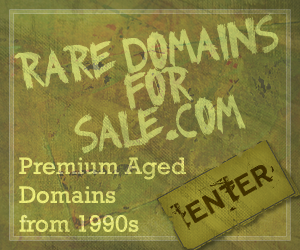Janice Min, the veteran news editor and executive credited with reviving The Hollywood Reporter, a number of years in the past launched a special roughly media mission: The Ankler, a subscription-based totally news outlet overlaying Hollywood and the leisure business.
The Ankler began off as popular Substack e-newsletter written by means of journalist Richard Rushfield that boasted a fleet of big name readers (David Zaslav and Richard Plepler are avid fans). In the previous few years, Min and Rushfield have grown the industry right into a community of newsletters and podcasts devoured via leisure industry insiders.
Min joined Mediaite’s The Interview podcast this week to talk about how she constructed The Ankler, her incredible profession in journalism, the way forward for the media trade, and a rocky yr for Hollywood.
Watch the whole interview above, and skim highlights from the dialogue beneath.
On The Ankler
The theory behind The Ankler is to offer this very engaged, skilled, high finish entertainment target audience information it’s not getting anywhere else. It’s a excessive-level diagnosis and information and information. How it began used to be Richard Rushfield, who’s an extraordinarily smartly-recognized writer in Hollywood, broke off and started his own Substack, like so many people did however he used to be probably probably the most first. And I had in my world all these very senior people, CEO level, top producers, high attorneys had been telling me, ‘Have you seen this factor that this guy Richard Rushfield is doing?’ And so I turned into a subscriber and beloved it.
What Richard was once doing was once in reality taking pictures the the shifts in leisure that we had been seeing, that we began to peer again in 2019 the place it used to be going from a legacy, old studio business with seven studios into a streaming-led economy, and it was turning the whole thing the wrong way up, both within the varieties of shows and flicks that have been getting made, but also in the employment of people on the town and the town’s hierarchical structure. Richard was owning that disruption.
I asked him if he wanted to do something more with it. And we did a small fundraiser. We were in Y Combinator, and we managed to make a industry out of it. One of the most issues I’m proudest of is that what we do at The Ankler is very thoughtful. I wish to assume it’s probably the most smartest things that you can learn concerning the entertainment business in town. And it’s a excessive subscription worth. It’s $149. And what we’re no longer doing is buying and selling on news as a commodity. I’m at all times happy to look the stories that perform very best for us are the ones that we’re giving folks knowledge they don’t seem to be discovering any place else.
On the exchange magazines
Neatly, I feel that the whole thing has its generation. You noticed in the entertainment house, Nikki Finke in Time limit, we had that technology and it in point of fact disrupted the way in which trades did issues. The Hollywood Reporter got here in and really went from the ultimate position loser to the dominant newsletter in the entertainment space. I might say that competition used to be always a massive part of making the change press. And without a doubt in that decade, once I labored at The Hollywood Reporter, it was once a critical a part of motivating the newsroom to distinguish content material.
So when Jay Penske took possession of the most important trades of both Hollywood Reporter and Variety and then additionally Deadline, I believe that used to be difficult. I feel it obviously reduces competition, however I also think it’s a dilution of voice, and there used to be additionally this marketplace for journalists where time and again I needed to counter any individual’s cash because they have been getting supplied a job at Selection or Deadline. At the moment everybody wanted this magic of The Hollywood Reporter on their workforce. People felt like they’d choices on the town and in Los Angeles.
Now, you’ve in point of fact limited your choices because there’s one location that’s most likely the largest agency in relation to entertainment media, however most likely all media. So I don’t suppose that’s nice. I additionally assume that whilst you work at a type of large trades, there’s so many competing interests that dilute the journalism of it. And because you’ve gotten situations, you want to e-book folks, you need to e-book individuals for the covers. You’ve main advertisers who’re going to freak out about this and that. So I’ve been in reality happy with the way in which at The Ankler that we’ve been able to interrupt tales and do tales with our tiny little, now six-person workforce that the trades don’t get with their a whole lot and hundreds of people.
On Hollywood’s yr of strikes
There used to be a huge shift in Hollywood and a tremendous temper change on account of the Hollywood strikes. There are lasting ripple effects. It’s like a household who had a tremendous struggle. I don’t know if someone noticed the Christmas episode of The Endure, but it surely’s a little bit like this, like a dysfunctional domestic now coming again collectively.
And what truly struck me concerning the strikes used to be how virulent probably the most comments were from high folks on the ingenious side, from the writers and the actors. And no doubt you saw Fran Drescher doing that work. In the years sooner than, even the months earlier than there was once a certain reverence across the CEOs, round Bob Iger, round David Zaslav and the sort of wealthy person worship.
These have been like the nice men of leisure and that received blown apart with the strikes the place there have been form of this — and I might apply this to any place where Silicon Valley or mission cash or non-public fairness money has taken dangle and even, , this entire conception of salary studies that was the guiding drumbeat of Hollywood and that did not exist even just a few years ago. And so what the strikes published was this resentment through the employees — and once I say staff, I’m speaking about even showrunners who’ve hundred million greenback offers at studios — of simply how the enjoying box changed and the resentment towards now not sharing the wealth, the quantity that CEOs are getting paid, they’re paying themselves after they’re reducing back on programing spending and on folks’s pay and salaries.
In order that actually delivered to the forefront this resentment that you just’re seeing in every industry that has been upended through each Wall Street and finance, but also Silicon Valley. And I think Richard Rushfield, my associate at The Ankler, writes about this loads. However, you understand, probably the most Silicon Valley tenets is how you can constantly decrease the cost of labor to maintain making extra money and that’s how you scale and in addition the replaceability of labor, ultimately the replaceability of people. There used to be a brokenness that was printed in the strikes that brought that dialog ahead.
Subscribe to The Interview on YouTube, Apple Podcasts, or Spotify.
The put up Exclusive: Janice Min on The Ankler, Main Upheavals in Hollywood, And The Way forward for the Media Business first seemed on Mediaite.



